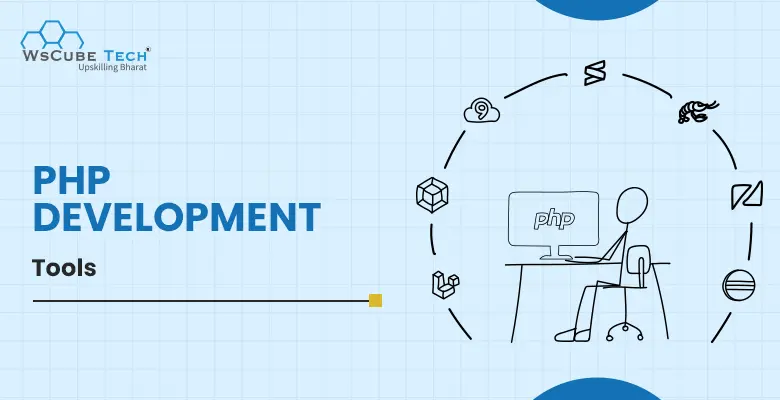PHP, or Hypertext Preprocessor, is one of the most extensively used server-side scripting languages for developing websites and web applications. It is popular because of the following goodies:
- Open-source and easy-to-use
- Comprehensive documentation
- Multiple ready-to-use scripts
- Strong community support
- Well-supported frameworks
However, to fully leverage this technology and simplify tasks, PHP developers utilize specific tools that improve programming efficiency and reduce development errors. PHP development tools offer a conducive IDE (Integrated Development Environment) that enhances the PHP web development productivity.
Currently, the market is overflooded with PHP tools. Therefore, it becomes complicated for PHP development teams to choose the perfect set of tools that will fulfill their project needs. This blog enlists the best PHP development tools along with their offerings.
A quick read will help you choose the most suitable tool for your PHP development project.
What is PHP?

PHP, a general-purpose scripting language, is used in the creation of websites and has amassed popularity owing to its simplicity, flexibility, and speed. It helps to create dynamic webpages to interact with databases, generate real-time content, process user inputs, and perform tasks on the web server.
Another feature of PHP development’s popularity is that it is open source. It is free to download and use and comes with a vast community of developers who regularly contribute to its growth and improvement.
A few reasons why PHP is a smashing success among programming languages are given below:
- Simple and easy-to-learn syntax.
- Has applications beyond web development, such as server and command-line scripting.
- Embedded in HTML in the most straightforward format, allowing effortless interaction with databases and other web-based tech.
- Extensive documentation and community resources for learning, troubleshooting, resolving issues, etc.
- Developers can integrate static and dynamic content trouble-free.
- Availability of numerous frameworks and tools that accelerate the development process.
- It is scalable, so both new and established businesses use it.
- Integration with other technologies, such as HTTP protocols, databases, and APIs, makes it perfect for creating dynamic and interactive web experiences.
Also read: How to Become Full-stack Developer With No Experience? 2025 Roadmap
What are PHP Development Tools?
Experts have developed several tools for PHP development to increase efficiency and make it work better. These development tools account for the best PHP Integrated Development Environment (IDE). This platform allows PHP developers to build innovative, intuitive, and rich-in-feature PHP projects.
The PHP development tools are used to increase efficiency in programming. Considering this fact, thousands of software for PHP development and tools are available.

Best PHP Development Tools (2025 List)
The following PHP development tools help the developer to build innovative, engaging, and feature-rich PHP projects:
1. Cloud9
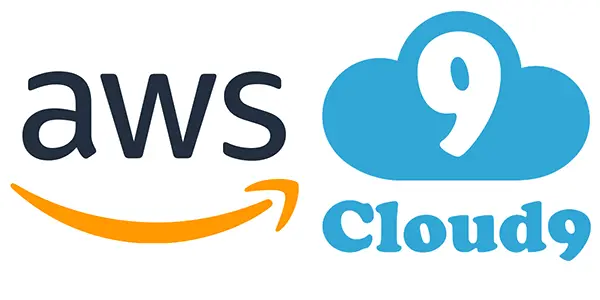
Developers sometimes don’tdoesn’t want to download and install a different IDE. So, there is Cloud9 – an online PHP for those developers. The Cloud9 tool enables you to write, run, debug, and test the code without installing it on the local device. It helps the developer start the project immediately without installing and configuring files, SDKs, and plugins.
Cloud9 is an open-source cloud IDE that offers a development environment for various programming languages like C, C++, JavaScipt, and Python. This tool comes with an online solid code editor, PHP debugger, and terminal with pre-authorization across AWS services. Cloud9 comes with pre-packaged extensions, so using out-of-box plugins lets you start working on new projects immediately.
Specialties
- Support languages like JavaScript, C, C++, HTML5, and PHP.
- Support other platforms like Windows, Mac, OS, Linus, and Solaris.
Features
- Integrated debugger
- Carry out real-time language analysis
- Enable access to AWS services
- The debugging process is integrated
2. PHP Strom

Lightweight in nature, PHP Storm is the most common choice for other PHP development tools. This PHP IDE works well with PHP frameworks like Zend Framework, laravel, CakePHP, Symfony, and other well-known content management systems like Drupal, WordPress, and Magento. This IDE provides IDE support for major front-end technologies like CSS, JavaScript, HTML5, etc., while supporting code refactoring, unit testing, and debugging.
Besides, it empowers developers to integrate with databases, remote deployment, composer, command line tools, version control system, rest client, etc.
Specialties
- Supported platforms like Linux, Mac OS X, and Microsoft Windows
- Supported languages like PHP, Visual Basics, C, C++, C#, and JavaScript
Features
- Native encoding support
- Code- rearranger
- Support extension with other valuable plugins like VimEditor
- Code completion
3. PHPUnit

PHPUnit is the dede-facto testing framework for PHP web developers. The developers can write unit tests for PHP web apps efficiently. It is derived from the popular JUnit, a popular testing framework for Java Programming.
The application code is divided into smaller units in unit testing. After that, each unit is tested individually with various test cases. Unit testing helps ensure that every part of the web application works correctly. This PHP development tool provides efficiency and stability and works with every codebase. Users can write tests in any way they prefer.
Specialties
- Supported by all popular PHP web frameworks and IDEs like Zend Framework, CakePHP, PHP Storm, and many more.
Features
- Debugging
- Latest refactored code validation
- Enables determining code coverage
- From scratch, write test cases according to the requirement
Also read: 11 Most Popular Web Development Languages in 2025
4. Code Lobster
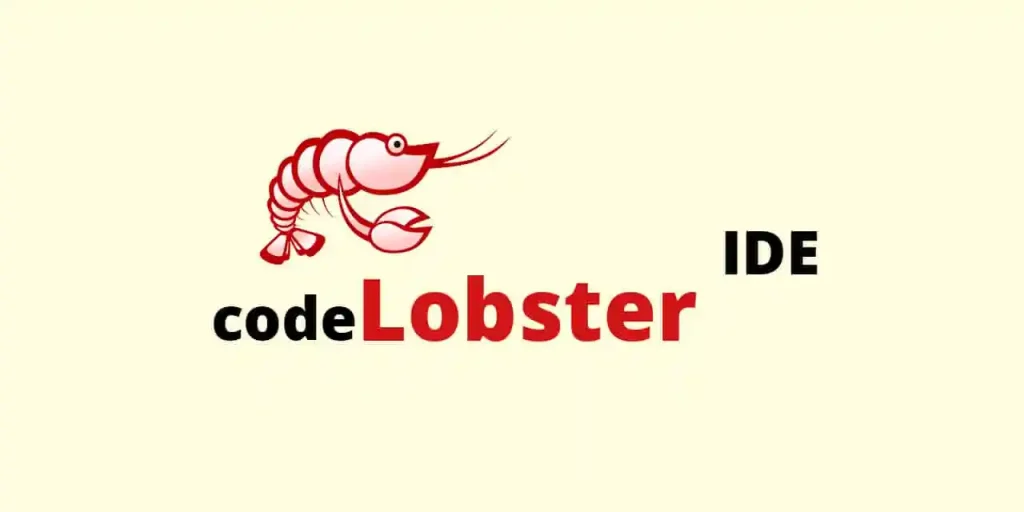
Codeobster firms create Codelobster, a favorite among the developer community among all the PHP development tools. Any developer is familiar with PHP frameworks like CakePHP, Joomla, Drupal, Laravel, and Symfony. The Code Lobster supports all this and contributes to its popularity.
With Code Lobster, there’s no requirement to remember a function’s name, tags, or attributes because it has autocomplete features that will implement all these for HTML, PHP, CSS, and JavaScript.
Specialties
- Support languages like PHP, HTML, CSS, and JavaScript.
- Support content management systems like Drupal, WordPress, Magento, and Joomla.
- Support other platforms like Windows, Linux, Ubuntu, Mac, OS, and Mint.
Features
- Syntax highlighting
- Code Validator
- SQL manager
- Function parameters display
5. Sublime Text
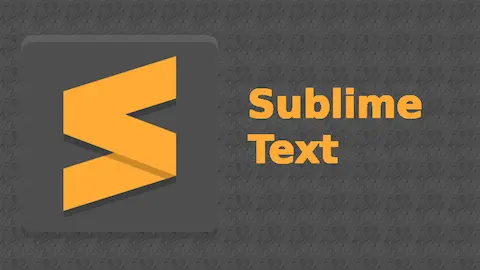
Sublime Text is one of PHP developers’ most widely used text editors. IDE is not actual; thus, you can convert it into a decent editor for writing PHP applications by implementing specific plugins. However, this cross-platform source code editor supports multiple programming languages natively.
However, with its feature-rich functions and distinctive looks, the developer community considers the text editor the most excellent Web development IDE for PHP programming. Its foremost configurable text editor comes with a UI toolkit that enables you to navigate among symbols, lines, and words using valuable shortcuts.
Specialties
- Support almost all languages
- Support different platforms like Linux, Mac OS, and Windows
Features
- Effective command palette
- Allows interaction with many lines simultaneously and changes variable names and other attributes.
- Many plugin APIs and packages
- Support spilled editing
6. Apache NetBeans
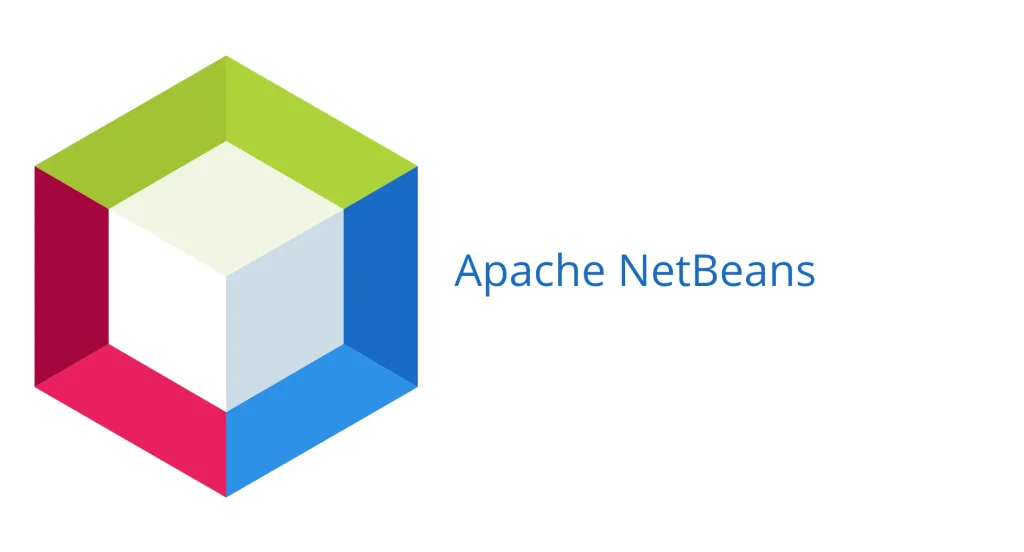
Every developer must have heard about this PHP development tool. It is a trendy and integrated development environment for developing and designing web applications. The tools include various features like database tools, git, SVN, code hinting, etc., used in developing PHP software.
Apache NetBeans, the current version of the PHP development tool, is lightweight, quick, and supportive. It boasts of being downloaded millions of times and has the largest developers community in an open-source integrated development environment.
Specialties
- Language supported: PHP, JavaScript, C, C++, and HTML5
- Platform supported: macOS, Solaris, Linux, and Windows
Features
- Code navigation
- Code folding and formatting
- Getter setter generation
- Helps with bug-free code
- Syntax highlighting

7. Zend Studio
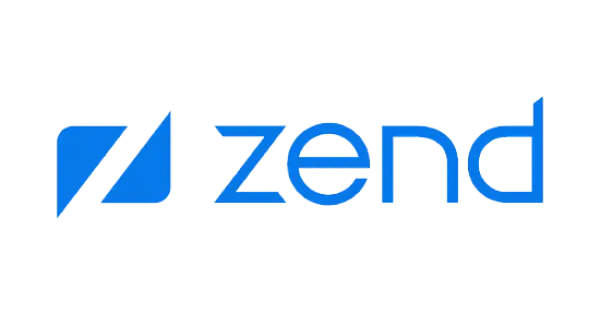
Almost all websites are written in PHP version 7. Zend Studio is appropriate for PHP 7 and is used by most developers. Developers can write and debug code using Zend Studio and Zend debugger without spending extra time. It connects with X-ray, Xdebu, Zend Debugger, and debugs PHP scripts.
This PHP development tool has advanced features that can potentially deploy applications on different servers, including the ones in the cloud. The developers also have the choice to use Eclipse plugins and extend Zend Studio.
Specialties
- Support PHP, JavaScript, C, C++, C#, and Visual Basics.
- Platforms supported include Microsoft Windows, macOS, and Linux.
Features
- Docker support
- Quick performance in the validation
- Indexing and searching PHP code
- Enable to code better with an intelligent code editor
8. PhP Debugbar
PHP Debugbar enables you to show profiling data from various web applications. This development tool comes in 2 parts: Debugbar and data collectors and renders. The development tool works on data collector architecture. Also, it allows you to save your requests and reopen them.
Specialties
- PHP version supported: PHP 5.5 and above
- Supported language: Ruby, Net, Java, and PHP
- Monitor network traffic
- Fast and easy-to-use interface
- Manage AJAX requests
- Fast and easy interface
Also read: How to Learn Coding & Programming in 2025? Best Ways
9. Eclipse

It is another highly Eclipse PHP development tool used by developers. Eclipse is a complete development tool that provides all the liberty to select from various plugins. Developing and simplifying PHP code using this tool is easy, and duck soap. It is idle for large-size PHP projects and enables you to customize and extend the IDE to address the website development project requirements.
It supports both GUI and non-GUI web applications; this PHP development tool works with any web server that supports PHP.
Specialties
- Platforms supported like Microsoft Windows, Mac OS Linux, and Solaris
- Language supported C, C++, Haskell, Javascript, Java, Julia, Natural, PHP, Scheme, and Erlang
Features
- Code navigation
- Content assist
- Syntax highlighting
- Code templates
10. Behat- BDD Testing Tool
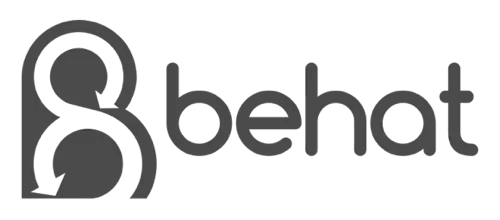
Behat is a Behavior-Driven Development (BDD) testing tool for PHP. It is an open-source framework and an agile software development methodology that boosts communication between developers, QA (Quality Assurance) professionals, and non-technical stakeholders. BDD uses Gherkin syntax to create testable scenarios.
Specialties
- Focuses on collaboration between developers, testers, and stakeholders
- BDD uses a human-readable language called Gherkin syntax
- BDD is a derivative of test-driven development (TDD)
- Open-source BDD framework for PHP
11. Aptana Studio

It is an open-source PHP development tool that integrates several client-side and server-side web technologies like HTML5, Python, Ruby, Ruby on Rails, and more. Aptana Studio supports a command-line interface and debuggers, making it easier for PHP app developers.
It enables PHP developers to build and test web applications in a unified environment. However, Aptana Studio comes with SFTP, FTP, and IDE customization and includes various attractive features to enhance the coder’s productivity.
Specialties
- Supported platforms: Windows, Linus, Mac OSX, and plugin for Eclipse.
- Supported languages like PHP, Ajax, HTML, JavaScript, and Ruby on Rails.
Features
- IDE customization
- Support the latest HTML5 specifications
- Git integration and in-built terminal
12. Xdebug- Debugging Tool
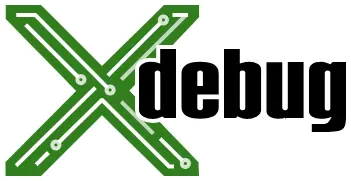
Xdebug is a PHP extension that offers numerous features to improve the PHP development experience. Additionally, Xdebug enhances PHP’s error reporting capabilities with enhanced var_dump() and stack traces for Notices, Warnings, Errors, and Exceptions, highlighting the code path leading to error 2.
Specialties
- Set Breakpoints in PHP code to gain insight into the code’s status during runtime.
- Xdebug Provides profiling to analyze the performance of your PHP application.
- It also shows code average analysis.
- Xdebug has tight integration with IDEs.
Also read: 20 Best Web Development Tools in 2025 (Web Dev Tools List)
What Are PHP Development Tools Used for?
Every developer aims to escalate the effectiveness and efficiency of their PHP development processes. PHP tools are a one-stop center for all development requirements: streamlining workflows, upgrading code quality, and simplifying tasks; they do it all.
A complete breakdown of their applications is summarised below:
1. Code Writing and Editing
PHP developers can effortlessly write and edit codes in code editors and IDEs. They also facilitate features like highlighting syntax, code completion, and intelligent suggestions for the user’s ease.
2. Version Control
These allow developers to manage various versions of projects, track code changes, work in teams, and document code changes over time. Also, it enables reverting these changes in cases where the need may arise.
Example: Git
3. Dependency Management
PHP projects often require external libraries and packages. These tools allow developers to manage dependencies, making updating and integrating within the tech stack easier. Further, it ensures that projects use correct versions of the dependencies.
Example: Composer
4. Debugging
Developers must find and fix code errors and produce bug-free applications. Debugging tools have features like step execution and inspection of variables.
5. Testing
Developers must write and execute unit tests to ensure that individual parts of the code run intendedly. It increases code stability and accuracy, enabling developers to find problems early in the development cycle. Example: PHPUnit
6. Database Management
To execute database operations without SQL queries, these PHP tools allow developers to interact with databases via web-based interfaces.
Example: phpMyAdmin, Adminer
7. Performance Optimization
Developers use PHP software to analyze the performance of their applications, detect any bottlenecks, and improve the efficiency and speed of the codes.
8. Web Development Frameworks
Development frameworks aid in building web applications as they yield developers with off-the-rack structures and libraries, cutting out the need to write repetitive codes.
Examples: Symphony, CodeIgniter, Laravel
9. API Development & Testing
These are key tools for designing, testing, and documenting APIs for applications interacting with external sources.
Example: Postman
10. Security & Quality Assurance
To abide by security best practices, PHP tools are used to identify application vulnerabilities. Moreover, coding standards are enforced to ensure the quality of the codebase.
Also read: Web Design vs Web Development: What’s the Difference?
Types of PHP Development Tools
PHP development tools are software applications that help write, debug, test, and manage code. These tools improve productivity, code quality, and efficiency in PHP development.
Some common types of PHP development tools are:
1. Integrated Development Environments (IDEs)
PHP programmers use IDEs as a thorough development environment. IDEs have features like code editing, completion, debugging, project management, etc.
Examples: PhpStorm, NetBeans, Eclipse PDT.
2. Code Editors
These lightweight tools focus on code editing. Their features comprise syntax highlighting, code folding, and essential code completion.
Examples: Visual Studio Code, Sublime Text, and Atom.
3. Debuggers
Debuggers are among the most prominent PHP development tools. They help detect and resolve issues within the code so developers can set breakpoints and step through the code. Debuggers can inspect variables and trace the execution of the program.
Example: Xdebug.
4. Package Managers
This PHP dev tool simplifies the management of PHP dependencies. Additionally, they automate the installation, updation, and removal of libraries and packages a PHP project needs.
Example: Composer.
5. Testing Frameworks
PHP development tools, too, include testing frameworks like PHPUnit and Codeception. They allow developers to write and execute tests for their PHP code. These frameworks offer assertions, test runners, and reporting tools that ensure code quality and help identify bugs.
6. Performance Profilers
Profilers like Xdebug or Blackfire analyze the performance of PHP websites. They identify the bottleneck and measure the execution times. So, the PHP developers can get insights to optimize the code that increases the application’s performance.
7. Code Quality Tools
Developers use code quality tools like PHPMD and PHPCodeSniffer to analyze adherence to coding standards. They can detect potential issues and enforce best practices that ensure consistent code quality in PHP web applications and websites.
8. Database Management Tools
Often, PHP development involves working with many databases. Tools such as phpMyadmin provide graphical interfaces for managing databases. They help execute queries and inspect data.
9. Deployment Tools
Deployment tools like Capistrano or Deployer automate the deployment process for PHP apps. They facilitate tasks like configuration management, environment setup, and code deployment.
These are a few examples of PHP development tools available. The choice of tools depends on various factors, including project requirements, the development workflow, and developer preferences.

How to Pick the Right PHP Development Tools?
PHP tools contribute to a more organized, efficient, and reliable development process that allows developers to focus on building high-quality apps.
They have fascinating, user-friendly, 100% responsive, and interactive features. By integrating third-party products, techies can give users quick access to numerous benefits with just one click.
They work with various OS, including Windows, macOS, and Linux. It is mandatory to confirm that a PHP tool is in accordant with your technical stack platforms and coding languages prior to adding it.
FAQs about PHP Development Tools
PHP development tools include frameworks and applications developers use to write, test, and debug code.
PHP development tools are not necessary, as you can write code using a simple text editor. However, developers prefer using tools to enhance code efficiency, reduce errors, improve productivity, and seek debugging support. Also, these tools offer features like auto-completion, syntax highlighting, and version control integration.
The most recommended IDEs for beginners are PHPStorm, Visual Studio Code, NetBeans, and Eclipse PDT.
We can write PHP code using a simple text editor like Notepad. However, IDEs help us enhance efficiency.
The best PHP development tools are Cloud9, PHP Storm, PHPUnit, Code Lobster, Sublime Text, and Apache NetBeans.
The code editor tools that you can use for PHP development include Brackets, Sublime Text, Atom, and Visual Studio Code.
The top debugging tools in PHP are Zend Debugger, Laravel Debugbar, Kint Debugger, and Xdebug.
Tools you can use for PHP testing are Behat (behavior-driven testing), PHPUnit (unit testing), and Codeception (functional and acceptance testing).
The best database tools for PHP development are Sequel Pro (for Mac users), Adminer (lightweight alternative to phpMyAdmin), phpMyAdmin (for managing MySQL databases), and DBeaver (cross-platform).
The top version control tools in PHP are GitHub, Git, Bitbucket, and GitLab.
The tools you can use to optimize PHP performance are Opcode caches (especially OPcache), application performance monitoring (APM) platforms like New Relic, Blackfire (performance profiling tool), code analysis tools like PHPStan or Psalm to find potential performance bottlenecks in code, and profiling tools like Xdebug.
The best caching tools to enhance PHP performance are Memcached, OPcache (Zend Opcache), Redis, APCu (APC User Cache), and Varnish.
Conclusion
Whether a website, a web application, or another software, these 12 PHP development tools will simplify your web development process. These best PHP software has everything from code editing and version control to debugging, testing, and performance optimization.
Selecting the right PHP software depends on your project demands, the languages you work with, and the platforms you use. Evaluate your needs, keep up with the current PHP trends, try free trials when available, and choose the tools that align best with your development workflow.
Embracing these tools can significantly enhance your development process, leading to more coherent, high-quality, and delightful web apps.



